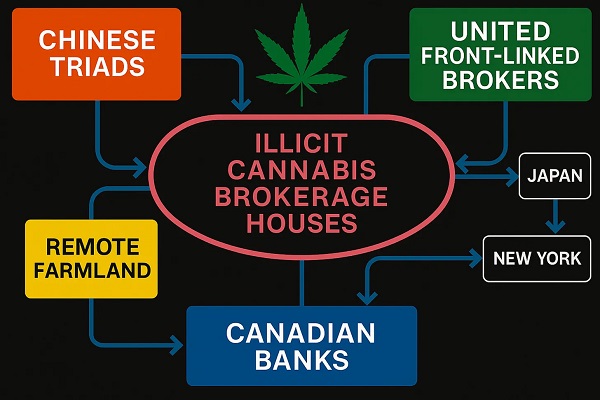Crime
Charlie Kirk’s Widow Says She Forgives Her Husband’s Assassin During Memorial


From the Daily Caller News Foundation
Erika Kirk forgave her husband’s alleged assassin Sunday during a speech at the memorial service for Turning Point USA founder Charlie Kirk, saying he would not respond with hatred.
The accused assassin, 22-year-old Tyler Robinson, was arrested by police on the evening of Sept. 11, roughly 33 hours after Kirk was fatally shot while taking part in a “Prove Me Wrong” event at Utah Valley University.
In the midst of an emotional speech, Erika Kirk recounted the Biblical account of Jesus Christ on the cross forgiving those who crucified him.
Dear Readers:
As a nonprofit, we are dependent on the generosity of our readers.
Please consider making a small donation of any amount here.
Thank you!
WATCH:
“On the cross, our Savior said, ‘Father, forgive them, for they know not what they do,’” Mrs. Kirk said, choking up with emotion. “That man, that young man… I forgive him.”
The audience erupted in applause and emotion for approximately 45 seconds as Erika Kirk broke down in tears.
“I forgive him because it is what Christ did,” Mrs. Kirk said. “It is what Charlie would do. The answer to hate is not hate. The answer we know from the gospel is love, and always all. Love for our enemies and love for those who persecute us.”
Prior to forgiving the assassin, Mrs. Kirk told a capacity crowd that filled up State Farm Stadium why Charlie Kirk went to the college campuses.
“Charlie passionately wanted to reach and save the lost boys of the west, the young men who feel like they have no direction, no purpose, no faith and no reason to live. The men wasting their lives on distractions and the men consumed with resentment, anger and hate,” Erika Kirk said, choking up at times. “Charlie wanted to help them. He wanted them to have a home with Turning Point USA, and when he went onto campus, he was looking to show them a better path and, a better life that was right there for the taking. He wanted to show them now. My husband, Charlie, he wanted to save young men, just like the one who took his life.”
Crime
Conservatives Re-Introduce Bill to Ensure Paul Bernardo Stays in Maximum Security Prison

News release from Conservative Party Communications
Friday, Tony Baldinelli, Conservative Member of Parliament for Niagara Falls—Niagara-on-the-Lake, introduced a Private Member’s Bill, which seeks to keep dangerous offenders and mass murderers like Paul Bernardo in maximum security prison.
In a May 2023 decision which shocked the community – and Canadians across the country – Correctional Service Canada transferred infamous serial killer Paul Bernardo from a maximum security prison at Millhaven Institute near Kingston, Ontario, to a medium security prison at La Macaza in Quebec.
“A decade of Liberal soft-on-crime policies has put the rights of criminals ahead of the rights of victims and the law-abiding public. Paul Bernardo should never have been transferred to a medium security prison. This terrible decision not only shocked the country, but it revictimized the families and should never have been allowed to happen,” said Baldinelli. “My Private Member’s Bill will make sure it never happens again.”
Baldinelli’s Bill C-232 will amend the Corrections and Conditional Release Act to require that all court-ordered dangerous offenders and mass murderers be permanently assigned a maximum security classification. It will also repeal the Liberals’ “least restrictive environment” standard for assigning inmates to prisons and restore the language of “necessary restrictions” that the previous Conservative government put in place.
The Bill complements a larger Conservative effort to combat the out-of-control crime wave Canadians are facing after a decade of Liberal government.
These other measures include:
- A three-strikes law for repeat violent offenders so that serious crimes come with serious consequences.
- Restoring safe streets with a Jail Not Bail Act to improve public safety and tip the scales of justice back in favour of innocent Canadians.
- Strengthening the legal response to intimate partner violence through Bill C-225.
- Ensuring that victims of crimes are provided timely explanations of decisions determining the movement and status of criminals that victimized them through Bill C-221.
“Enough is enough. Conservatives will put victims’ rights before criminals’, restore law, order and safety in our communities, and ensure monsters like Paul Bernardo and other dangerous mass murderers and violent criminals stay where they belong: in maximum security prison,” said Baldinelli.
Crime
From Vancouver to Oklahoma: Canadian Murder Case and CCP ‘Police Station’ Links Align U.S. Testimony and The Bureau’s PRC Pot Investigations

At a hearing Thursday in Washington, Oklahoma Bureau of Narcotics Director Donnie Anderson told lawmakers the death highlights the violence spreading through an industry hijacked by transnational Chinese gangs believed to be guided by the Chinese Communist Party. Anderson testified that Chinese networks have set up thousands of illegal grow operations in Oklahoma, exploiting the state’s loose licensing regime and funneling proceeds through global laundering systems, while pointing to a vast national security risk. Shielded Chinese government interests are believed to be behind marijuana grows strategically purchased beside sensitive infrastructure, including a munitions base in Oklahoma that produces much of the Pentagon’s heavy weapons.
“This isn’t just about marijuana,” Anderson said. “It is my belief that the CCP maintains access to the criminal marijuana site operations, particularly through its known practice of controlling expatriates via so-called ‘police stations.’”
Anderson tied the farms to human trafficking, fentanyl, money laundering, and the risk of broad access to U.S. critical infrastructure, noting that commanding directors from New York and California — seldom seen locally — were behind the exploitation of Oklahoma farmland.
Anderson’s testimony aligns precisely with The Bureau’s investigations into Chinese cannabis and money laundering networks in Vancouver, which found that Beijing’s United Front Work Department was orchestrating a parallel cannabis trafficking and laundering system. That system leveraged Canada’s legalization to export product abroad and recycle proceeds through Canadian banks. The key figures identified in Vancouver included associates of the notorious Sam Gor global fentanyl and methamphetamine trafficking triad networks, as well as targets of the RCMP’s investigations into CCP “police stations” in Canada.
The Bureau’s reporting found that United Front command-and-control cells in Vancouver were routing Canadian “B.C. Bud” across the country in trucks and into New York, where U.S. law enforcement has identified significant Chinese organized crime leadership.
The human toll of brutal Chinese crime operations on U.S. soil was another focus of the hearing, pointing to a Canadian link. Without naming the victim, Anderson referred to the drug house execution of a Canadian national in July near Lake Thunderbird, Oklahoma.
Local reports say the Pottawatomie County Sheriff’s Office confirmed the victim as 42-year-old Canadian citizen Vongphachanh Philavanh. Deputies responded around 10:30 p.m. on July 18 to a licensed marijuana grow on East Hill Drive, just east of Lake Thunderbird. Capt. J.T. Palmer said two masked men forced their way through the front door of a residence on the property. Shots were fired, Philavanh was killed, and two surviving workers were bound with duct tape as the intruders ransacked the home before escaping.
Investigators believe Philavanh was the target of a robbery.
The method bore the classic hallmarks of a “grow rip” — a home-invasion style raid long practiced by the Big Circle Boys, a cellular and ultra-violent network with roots in China’s military, in which masked assailants bind occupants, execute rivals or debtors, and strip properties of cash and product.
U.S. lawmakers heard yesterday that Philavanh’s death was not an isolated tragedy but evidence of a much larger command structure. All three witnesses in Thursday’s hearing — Anderson, Heritage Foundation fellow Paul Larkin, and former DEA executive Chris Urben — pointed to the same conclusion: the Chinese Communist Party stands behind the crime syndicates now dominating America’s marijuana industry.
Urben described a DEA investigation codenamed Operation Sleeping Giant, which found that beginning around 2016, Chinese criminal networks completely took over global money laundering for cartels and organized crime active in the United States. The key enabler, he told lawmakers, is WeChat, the encrypted platform controlled by Beijing. “No other global crime network has a (state-protected) trusted communications system like that,” Urben said. “WeChat needs to be disrupted. It cannot continue to function as a secure platform for criminal money laundering. There must be a state-level, legislated solution with the Chinese government — one that ends WeChat’s use in these trusted networks.”
This testimony aligns directly with The Bureau’s long investigation into Chinese state-linked laundering in Vancouver. Around the same period U.S. agents were running Operation Sleeping Giant, Canadian police in Richmond uncovered the Silver International case — a vast Chinese drug-cash bank that exposed the so-called Vancouver Model. According to a Canadian police expert with direct knowledge, United Front operatives and Sam Gor-affiliated figures turned short-term rental properties across Vancouver into covert cannabis brokerage houses. These homes aggregated marijuana from acreages in B.C.’s interior and readied shipments for destinations including New York and Tokyo. Investigators observed a steady stream of people arriving with garbage bags and leaving with duffels, a pattern that mirrored the cash couriering at the center of the Silver International casino case.
“It was just phenomenal,” a Canadian intelligence source told The Bureau. “And all of it links back, ultimately, to the exact family and community of people that we’ve talked about for years.”
The source pointed to senior Vancouver Chinese consulate associates and known leaders of Beijing’s United Front Work Department community groups in Canada. These networks have been linked to Chinese military and government veterans operating in Canada. In The Bureau’s reporting, police sources said marijuana legalization under Prime Minister Justin Trudeau inadvertently handed Chinese organized crime the perfect cover. Product from farms in Oliver, Prince George, and the Okanagan was consolidated in the Lower Mainland, packaged and branded in transient brokerage houses, and then shipped east across Canada in gutted appliances and commercial loads. Once across the border, it flowed into New York, where cash proceeds were collected in United Front-linked brokerages and cycled back into Canadian financial institutions.
“They transport it down, and then we started seeing the rise of these brokerage houses again, with United Front control and Asian organized crime links,” a source said. “New York is a favourite destination. The weed goes out in a variety of routes, the money comes back to be laundered. The process is repeated.”
The system was sophisticated, distributed, and shielded by state direction. “Since legalization, Asian organized crime has emerged as the dominant force behind cannabis in Canada,” one source texted to The Bureau. “Product from grow ops in the interior of B.C. gets consolidated at short-term rental houses in the Lower Mainland. Brokers bid on product and provide packaging services for online sales.”
The fact that United Front suspects identified in these Canadian investigations — including community figures tied to Beijing’s Vancouver consulate — were the same actors later scrutinized by RCMP in foreign police station probes aligns exactly with Anderson’s testimony that he believes the People’s Republic of China has direct access to U.S. marijuana operations through CCP diaspora-control networks. The Bureau’s reporting found corroborating evidence of those commanding networks in Vancouver, and the same patterns of control exist in Ontario as well.
-

 Business2 days ago
Business2 days agoCarney Admits Deficit Will Top $61.9 Billion, Unveils New Housing Bureaucracy
-

 Alberta2 days ago
Alberta2 days agoAlberta first to add citizenship to licenses
-

 Alberta2 days ago
Alberta2 days agoBreak the Fences, Keep the Frontier
-

 Business18 hours ago
Business18 hours agoCarney’s ‘major projects’ list no cause for celebration
-

 Business19 hours ago
Business19 hours agoGlobal elites insisting on digital currency to phase out cash
-

 Business2 days ago
Business2 days agoCarney’s Ethics Test: Opposition MP’s To Challenge Prime Minister’s Financial Ties to China
-

 Business17 hours ago
Business17 hours agoRed tape is killing Canadian housing affordability
-

 Business2 days ago
Business2 days agoAttrition doesn’t go far enough, taxpayers need real cuts




